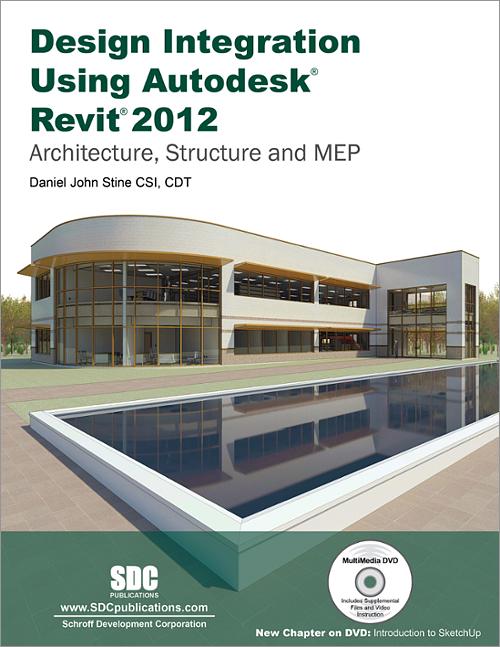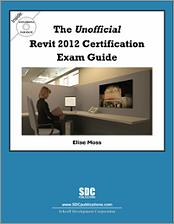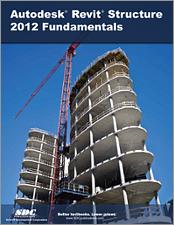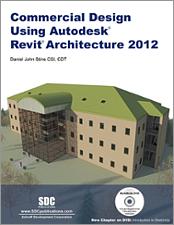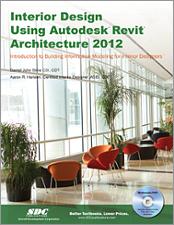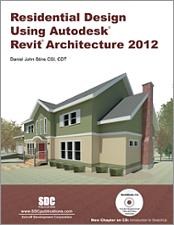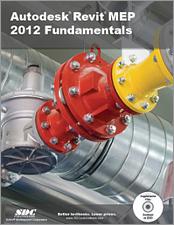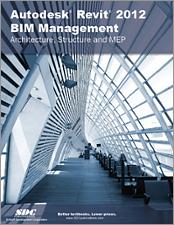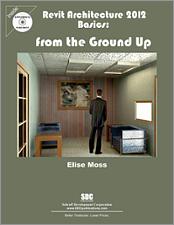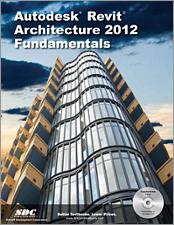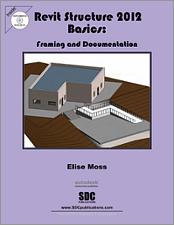Design Integration Using Autodesk Revit 2012
Architecture, Structure and MEP
- Description
- Contents
- Instructor Resources
- Details
Description
Key Features
- Combines all three flavors of Revit into one book
- Guides you through creating a two story law office while teaching you the BIM process
- Uses step-by-step tutorials and starts at an introductory level
- Included DVD contains video instruction, starter files, and bonus material
In Detail
Design Integration Using Autodesk Revit 2012 is designed to provide the reader with a well-rounded knowledge of Autodesk Revit tools and techniques. All three flavors of the Revit platform are introduced in this textbook. This approach gives the reader a broad overview of the Building Information Modeling (BIM) process. The topics cover the design integration of most of the building disciplines: Architectural, Interior Design, Structural, Mechanical, Plumbing and Electrical. Civil is not covered, but adding topography to your model is. Each book comes with a DVD containing numerous video presentations of the written material.
Throughout the book the student develops a two story law office. The drawings start with the floor plans and develop all the way to photo-realistic renderings similar to the one on the cover of this book. Along the way the building's structure, ductwork, plumbing and electrical (power and lighting) are modeled. By the end the reader will have thorough knowledge of many of the Revit basics needed to be productive in a classroom or office environment. Even if you will only be working with one component of Revit in your chosen profession, this book will give you important knowledge on how the other disciplines will be doing their work and valuable insight into the overall process.
As an instructor, the author understands that many students in a classroom setting have varying degrees of computer experience. To help level the playing field the first chapter is devoted to an introduction to computers. Much of the basics are covered, from computer hardware and software to file management procedures: including step-by-step instructions on using a flash drive.
Chapters 2 through 5 cover many of the Revit basics needed to successfully and efficiently work in the software. Once the fundamentals are covered, the remaining chapters walk the reader through a building project which is started from scratch so nothing is taken for granted by the reader or the author.
About the Included DVD:
Each book comes with a DVD containing:
- Video previews outline the tools utilized in each chapter and shows readers how to use them.
- Bonus chapters introducing the creation of custom Revit content (families) and Google SketchUp
- A bonus draft copy of the Roof Study Workbook which includes information on controlling the top surface of the roof in Revit
- Chapter starter files which allow readers to jump around the text or skip chapters
The videos cover the following:
- User Interface
- Walls
- Doors and Windows
- Stairs
- Roofs
- Floors
- Ceilings
- Elevations
- Sections
- Schedules
- Renderings
- Design Options
- Sheets
- Worksharing
- Phases
- Sweeps and Reveals
- Revit Structure
- Revit MEP - Mechanical
- Revit MEP - Electrical
Table of Contents
- Introduction to Computers for CAD/BIM Users
- Getting Started with Revit Architecture 2012
- Quick Start: Small Office
- Revit Basics: Overview of Linework and Modify Tools
- Revit Basics: Drawing 2D Architectural Content
- Law Office: Floor Plans
- Law Office: Roof, Floors and Ceilings
- Law Office: Structure System
- Law Office: Elevations, Sections and Details
- Law Office: Interior Design
- Law Office: Schedules
- Law Office: Mechanical System
- Law Office: Electrical System
- Law Office: Site and Renderings
- Law Office: Construction Documents Set
Appendix A: Autodesk Revit Architecture Certification ExamBonus Chapters on DVD
- Revit Content (Families)
- Introduction to Google SketchUp
Appendix B: Missing Elements
Appendix C: Roof Study Workbook
Appendix D: Rooms & Spaces
Instructor Resources
The following downloadable resources require that you are registered, logged in and have been authenticated as an instructor.
Product Details
| Publisher | SDC Publications |
| Authors | Daniel John Stine AIA, IES, CSI, CDT, Well AP |
| Published | June 13, 2011 |
| User Level | Beginner - Intermediate |
| Pages | 690 |
| Binding | Paperback |
| Printing | Black and White |
| Print ISBN | 978-1-58503-678-3 |
| Print ISBN 10 | 1585036781 |
| eBook ISBN | 978-1-63056-145-1 |
